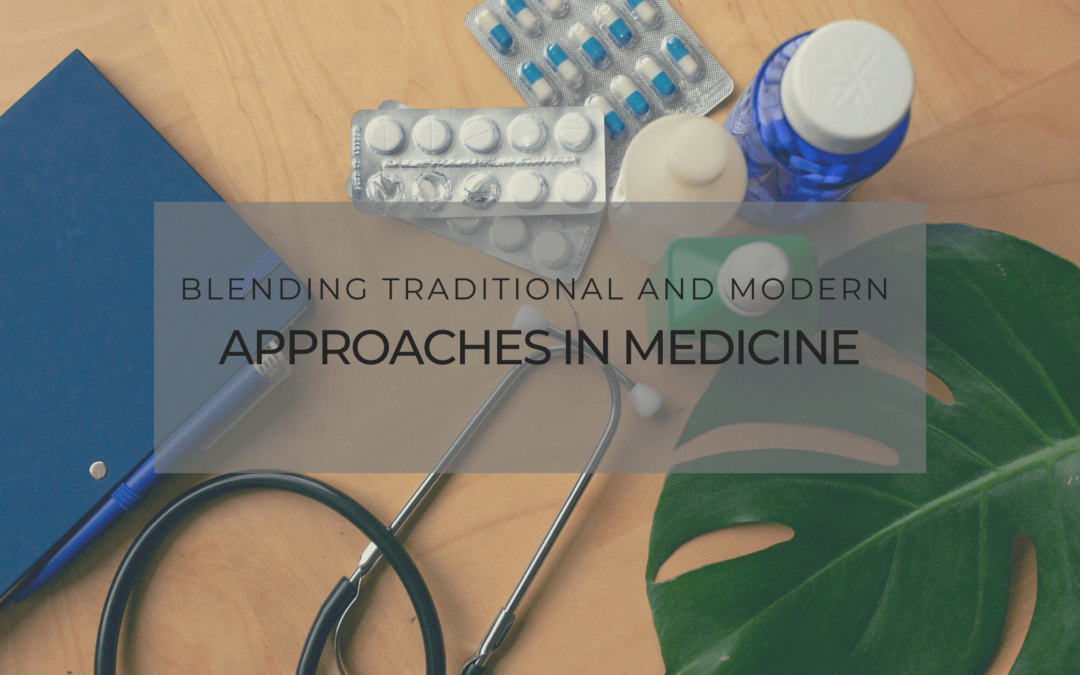In the dynamic healthcare landscape, the intersection of traditional and modern approaches has become a focal point for medical professionals seeking holistic and effective care. Conventional medicine, rooted in centuries-old practices, and modern medicine, characterized by technological advancements, are often perceived as contrasting approaches. However, an emerging trend in healthcare emphasizes the integration of both methodologies to harness their respective strengths. This blend offers a promising avenue for more comprehensive patient care, recognizing each approach’s value.
The Strengths of Traditional Medicine
Traditional medicine, often rooted in cultural and historical practices, has been a cornerstone of healthcare for millennia. Practices such as herbal medicine, acupuncture, and Ayurveda have stood the test of time, with their effectiveness acknowledged by diverse communities worldwide. One of the strengths of traditional medicine lies in its emphasis on preventive care and addressing the root causes of illnesses. Herbal remedies, for example, are often derived from natural sources and can be a gentler alternative to some modern pharmaceuticals.
Traditional medicine often adopts a personalized approach, considering the physical symptoms and the patient’s lifestyle, emotional well-being, and cultural background. This holistic perspective aligns with the growing recognition in modern medicine of the importance of treating patients as unique individuals rather than mere sets of symptoms.
The Advancements of Modern Medicine
On the other hand, modern medicine has made remarkable strides in diagnosis, treatment, and overall patient care. Technological advancements such as medical imaging, precision medicine, and pharmaceutical breakthroughs have revolutionized the field. Diagnostic tools like magnetic resonance imaging (MRI) and computed tomography (CT) scans allow for accurate and early detection of diseases, enabling timely interventions.
Additionally, modern medicine strongly emphasizes evidence-based practices, relying on rigorous scientific research to validate treatment approaches. This evidence-based foundation has led to significant advancements in surgical techniques, pharmaceuticals, and medical interventions, ensuring a higher standard of care for patients.
The Synergy of Integration
The blending of traditional and modern approaches in medicine represents a paradigm shift towards a more comprehensive and patient-centered healthcare model. Integrative medicine, as it is often called, seeks to combine the best of both worlds, recognizing that each approach has unique strengths that can add to the overall well-being of the patient.
For instance, cancer patients undergoing chemotherapy may experience side effects such as nausea and fatigue. Integrative medicine may incorporate traditional practices such as acupuncture or herbal remedies to alleviate these symptoms, complementing modern medical treatment without compromising its efficacy. This collaborative approach acknowledges that patients can benefit from a holistic strategy that addresses their physical and emotional health.
Integrating traditional and modern approaches fosters a more inclusive healthcare system that respects diverse cultural practices. This is particularly crucial in a globalized world where patients come from various cultural backgrounds, each with its rich tapestry of healing traditions. By incorporating elements of traditional medicine, healthcare providers can bridge cultural gaps and establish trust with patients, leading to more effective and personalized care.
As we navigate the complexities of healthcare in the 21st century, blending traditional and modern approaches emerges as a promising frontier. The strengths of conventional medicine, rooted in centuries-old practices and cultural wisdom, combined with the advancements of modern medicine, create a synergy that can revolutionize patient care. By embracing this integrative approach, healthcare providers can offer a more holistic, personalized, and culturally sensitive model of care that addresses the diverse needs of patients. As we move forward, the collaborative efforts of traditional and modern medicine pave the way for a future where the best of both worlds converges to enhance the well-being of individuals and communities alike.
